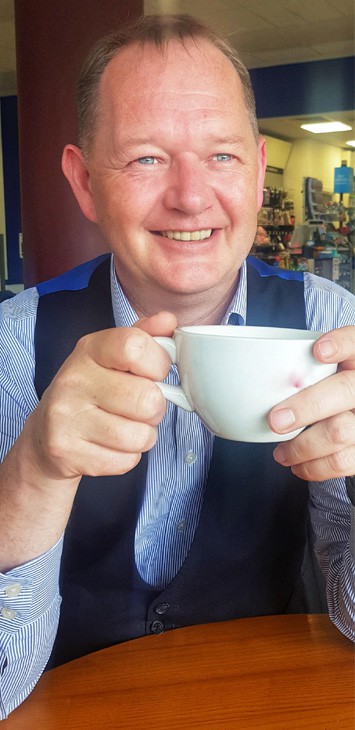Deacon appointed to new government role
Thomas Baldwin reports on the appointment of a Church of Scotland deacon to a new national spiritual care post.
A CHURCH of Scotland deacon has been appointed as the Scottish Government’s first national advisor on spiritual care.
Mark Evans DCS will be responsible for advising the government and NHS boards on the development of spiritual care policies, and setting up a board to ensure that the same standards of spiritual care are delivered in every health board throughout Scotland.
Mark, who will divide his time between the new role and his current job as Strategic Lead for Spiritual Care and Bereavement at NHS Fife, said he was ‘excited about it, but also a bit overwhelmed about the size of the task’.
He said: “I think if we’re being honest, Covid-19 has brought up huge issues about the role and importance of spiritual care and the importance of chaplaincy. Through the main peaks my team have been in red (zone) intensive care, we’ve been in red accident and emergency, we’ve been in red receiving unit, and we’ve been there not just to support patients – who of course come in alone – but the staff, who have seen significant amounts of death and trauma and distress.
“So during Covid-19 many chaplains up and down the country have been heavily involved in providing staff support, partly because there aren’t easy answers to a lot of the questions Covid has raised, and as a chaplain the job isn’t to give the answers, it’s to allow a person to ask the questions in a safe space.”
One of the changes that took place in Fife during the pandemic was that chaplains started to wear scrubs instead of the usual business clothes, partly because it is easier to put protective equipment on over scrubs, but also so they could be seen as part of the team. “And it worked,” says Mark. “We were in scrubs, standing with the staff and able to say to them ‘how are you doing?’, ‘how is this for you?’, ‘how are you coping?’, and we were seen as a member of the team, there and then in the moment, so people spoke to us.”
Mark added that part of the new job, which was due to start in February, would be about looking at what lessons could be learned from the pandemic. “What do we keep, what do we not keep, what do we adapt, what do we develop and where do we put resources?
“We need to abandon the idea that chaplains are just the religious people who come and do the churchy stuff. Our remit is much wider than that – it’s bereavement care, it’s end of life care, staff support. These are all core elements of spiritual care.”
He will also be involved in drawing up guidelines for the appropriate number of chaplains in each health board. “There’s a workforce tool that tells you how many nurses you need for x amount of patients with x amount of speciality, how many occupational therapists, how many physiotherapists, and so on. Traditionally chaplaincy has not been involved in that – there’s no matrix to work out what a safe or appropriate level of chaplains is so part of this job will be looking at that.

Mark Evans DCS
“Whether we’re going to get the funding for it is a different argument, and that won’t be my job – you’re then starting to stray into political decisions!” ¤